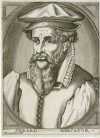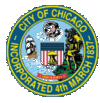Definition: (noun) A trembling or shaking.
Synonyms: shakiness, trembling, quiver, vibration.
Usage: Cornelius put his hand on his heart, to repress as it were its violent palpitation.
Discuss
Source: The Free Dictionary
The hunt for extraterrestrial life — of any kind, including lowly, long-dead microbes — is lofty enough. But the hunt for intelligent civilizations that could be looking for us in return? It’s even more of a long shot. In a new paper published in the … Discuss
Source: The Free Dictionary
 The phrase “Iron Curtain” refers to the political, military, and ideological barrier erected by the USSR after WWII to seal itself and its dependent eastern European allies off from contact with the West. Churchill’s use of the phrase in a 1946 speech at a US college, though initially perceived as antagonistic, popularized the term. The Iron Curtain largely ceased to exist in 1990, when the communists of eastern Europe finally abandoned one-party rule. What are some earlier uses of the phrase? Discuss
The phrase “Iron Curtain” refers to the political, military, and ideological barrier erected by the USSR after WWII to seal itself and its dependent eastern European allies off from contact with the West. Churchill’s use of the phrase in a 1946 speech at a US college, though initially perceived as antagonistic, popularized the term. The Iron Curtain largely ceased to exist in 1990, when the communists of eastern Europe finally abandoned one-party rule. What are some earlier uses of the phrase? Discuss
Source: The Free Dictionary
 In the island nation of Vanuatu, many islands have rejected European influence and instead prefer to live according to their traditional customs. While these customs vary widely throughout the islands, village life, subsistence farming, a belief in magic, and rule by chiefs are common. In 1977, a National Council of Chiefs was set up by the government to ensure the preservation of traditional ways of life. These tribal chiefs are honored on March 5 of each year; celebratory activities on this day include sporting events, carnivals, agricultural fairs, and arts festivals. Discuss
In the island nation of Vanuatu, many islands have rejected European influence and instead prefer to live according to their traditional customs. While these customs vary widely throughout the islands, village life, subsistence farming, a belief in magic, and rule by chiefs are common. In 1977, a National Council of Chiefs was set up by the government to ensure the preservation of traditional ways of life. These tribal chiefs are honored on March 5 of each year; celebratory activities on this day include sporting events, carnivals, agricultural fairs, and arts festivals. Discuss
Source: The Free Dictionary
 Mercator was a Flemish geographer, mathematician, and cartographer who perfected the first map using the Mercator projection, the translation of the spherical earth to a two-dimensional flat plane. In it, parallels and meridians are rendered as straight lines spaced to produce an accurate ratio of latitude to longitude at any point. It permits mariners to steer a course over long distances without continually adjusting compass readings. What map-related term was coined by Mercator? Discuss
Mercator was a Flemish geographer, mathematician, and cartographer who perfected the first map using the Mercator projection, the translation of the spherical earth to a two-dimensional flat plane. In it, parallels and meridians are rendered as straight lines spaced to produce an accurate ratio of latitude to longitude at any point. It permits mariners to steer a course over long distances without continually adjusting compass readings. What map-related term was coined by Mercator? Discuss
Source: The Free Dictionary
 The weightlessness experienced by humans in space poses a number of challenges in the performance of day-to-day tasks. Early experts feared that weightless conditions would make food difficult to swallow, allowing it to collect dangerously in the throat. Scientists began developing bite-sized cubes, freeze-dried powders, and semiliquid space foods for astronaut use, but the space travelers found the foods unappetizing, difficult to rehydrate, and messy. How have these concerns been addressed? Discuss
The weightlessness experienced by humans in space poses a number of challenges in the performance of day-to-day tasks. Early experts feared that weightless conditions would make food difficult to swallow, allowing it to collect dangerously in the throat. Scientists began developing bite-sized cubes, freeze-dried powders, and semiliquid space foods for astronaut use, but the space travelers found the foods unappetizing, difficult to rehydrate, and messy. How have these concerns been addressed? Discuss
Source: The Free Dictionary
Definition: (noun) A wandering minstrel, poet, or entertainer in medieval England and France.
Synonyms: folk singer, minstrel, poet-singer, troubadour.
Usage: The group of jongleurs was so popular that King Edward requested a private performance.
Discuss
Source: The Free Dictionary
Chengjiangocaris kunmingensis wasn’t exactly a beautiful animal: The crustacean-like Cambrian creature had a long, segmented body and an unholy number of legs that it used to scuttle across the ocean floor. But scientists are oohing and ahhing over the … Discuss
Source: The Free Dictionary
 In 1803, the US Army built Fort Dearborn on a tract of land along the Chicago River that had been acquired from the Native Americans after the Northwest Indian War. Over time, the settlement that grew up around the fort was incorporated as a city. A major port and the commercial, financial, industrial, and cultural center of the Midwest, Chicago is now the third-largest city in the US. Its name is derived from the Native American word shikaakwa, meaning “onion field,” a reference to what? Discuss
In 1803, the US Army built Fort Dearborn on a tract of land along the Chicago River that had been acquired from the Native Americans after the Northwest Indian War. Over time, the settlement that grew up around the fort was incorporated as a city. A major port and the commercial, financial, industrial, and cultural center of the Midwest, Chicago is now the third-largest city in the US. Its name is derived from the Native American word shikaakwa, meaning “onion field,” a reference to what? Discuss
Source: The Free Dictionary
 The idea of designating a day for Christians to pray together was suggested in 1887 by the Presbyterian Church in the United States. Today, the observance has spread to other denominations, all of which hold the same service on the first Friday in March. The Church Women United movement organizes the observance and selects a theme upon which women around the world focus as they join together in prayer. The praying starts as soon as the sun crosses the International Date Line and travels westward around the globe. Discuss
The idea of designating a day for Christians to pray together was suggested in 1887 by the Presbyterian Church in the United States. Today, the observance has spread to other denominations, all of which hold the same service on the first Friday in March. The Church Women United movement organizes the observance and selects a theme upon which women around the world focus as they join together in prayer. The praying starts as soon as the sun crosses the International Date Line and travels westward around the globe. Discuss
Source: The Free Dictionary